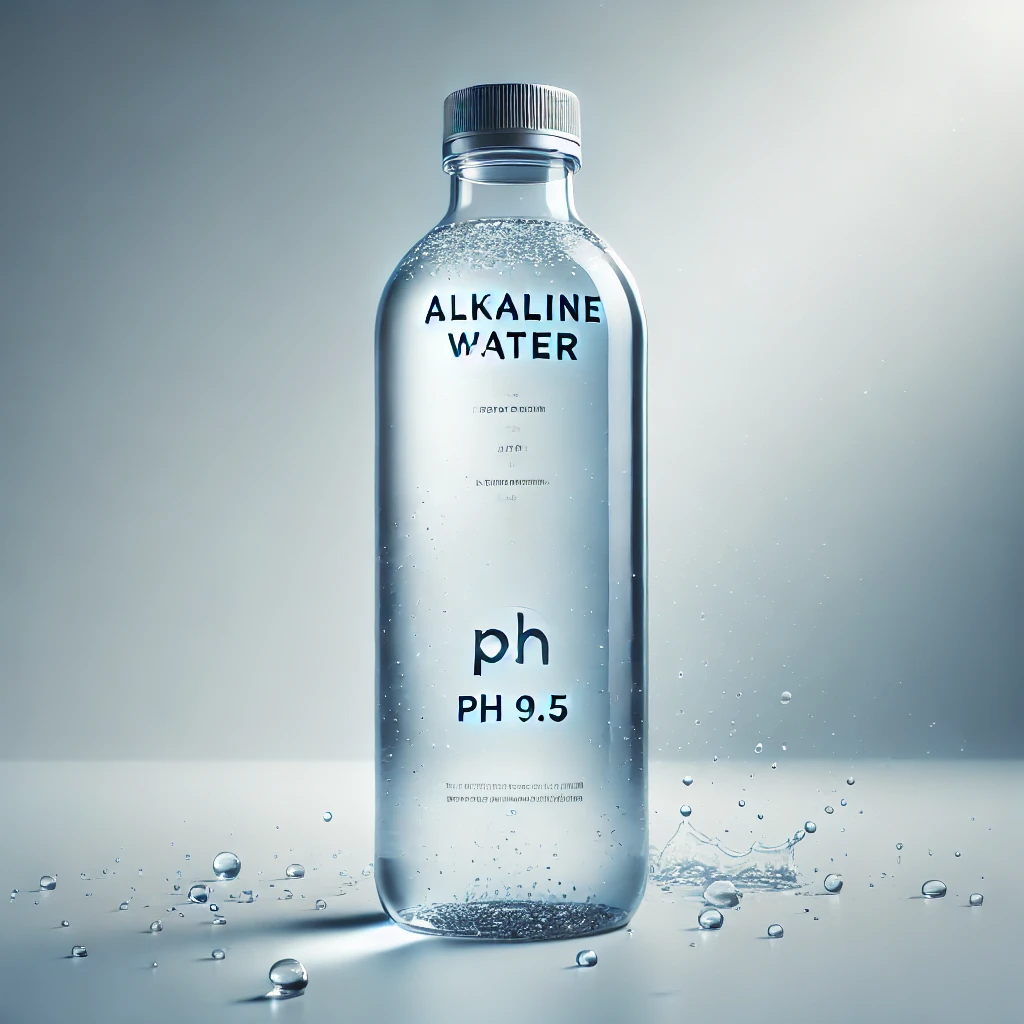Can Pregnant Women Drink Alkaline Water And 5 Notes
Can Pregnant Women Drink Alkaline Water And 5 Notes
Pregnancy is a time of joy, anticipation, and anxiety for expectant mothers. With countless dietary recommendations, it can be difficult to figure out what to do and what not to do during this important time. A frequently asked question is: Can pregnant women drink alkaline water? This article, provided by Wilimedia , explores the potential benefits and risks associated with drinking alkaline water during pregnancy. We explore the science behind alkaline water, its health effects, and whether it is a safe option for pregnant women.
Understanding Alkaline Water
Before answering the question of whether pregnant women can safely drink alkaline water, it is important to understand what alkaline water is. Alkaline water is water that has a higher pH level than regular drinking water. The pH scale measures how acidic or alkaline a substance is, with a range of 0 to 14. A pH of 7 is considered neutral, while anything below 7 is acidic, and above 7 is alkaline.
Alkaline water typically has a pH level of 8 to 9, achieved through natural means, such as the presence of minerals like calcium and magnesium, or through ionization, a process that uses an electric current to increase the pH level of water.
Potential Benefits of Alkaline Water
1. Neutralize Acids in the Body
One of the main reasons people choose to drink alkaline water is its potential to neutralize acid in the body. The modern diet, which is often high in processed foods, caffeine, and sugar, can lead to increased acidity. Proponents of alkaline water claim that it can help restore balance by reducing acid levels, which can be especially appealing to pregnant women who suffer from heartburn or acid reflux.
2. Hydration and Detoxification
Proper hydration is very important during pregnancy. Alkaline water is said to hydrate the body more effectively than regular water due to its smaller molecular clusters, which are said to be more easily absorbed by cells. Additionally, some proponents claim that alkaline water can aid in detoxifying the body by removing toxins more effectively.
3. Rich in Antioxidants
Alkaline water is often touted for its antioxidant properties, which help fight free radicals in the body. Free radicals are unstable molecules that can damage cells and contribute to various health problems, including aging and chronic disease. Antioxidants help neutralize these harmful molecules, and during pregnancy, when a woman’s body is under increased stress, the antioxidant benefits of alkaline water can be appealing.
4. Bone Health
Minerals found in naturally alkaline water, such as calcium and magnesium, are important for maintaining strong bones. During pregnancy, a woman’s body needs more of these minerals to support the development of her baby’s bones. Drinking alkaline water rich in these minerals can contribute to better bone health for both mother and developing fetus.
Risks and Precautions for Pregnant Women
While the potential benefits of alkaline water seem promising, it is important to consider the possible risks, especially during pregnancy. Here are some important factors to keep in mind:
1. Lack of Scientific Evidence
One of the main concerns with alkaline water is the lack of solid scientific evidence to support many of the health claims made by proponents. While some studies have shown benefits, these studies are often small or inconclusive. Pregnant women should be cautious about adding something to their diet that lacks adequate research evidence.
2. Excessive Alkalization
Drinking too much alkaline water can lead to a condition called alkalization, where the body’s pH level becomes too alkaline. This can lead to symptoms such as nausea, vomiting, muscle spasms, and confusion. During pregnancy, when the body’s balance is already delicate, the risk of over-alkalization may be higher.
3. Interfere With Stomach Acidity
The stomach needs to maintain a certain level of acidity to digest food effectively and protect against harmful bacteria. Drinking too much alkaline water can neutralize stomach acid, leading to digestive problems. For pregnant women, who may already experience changes in digestion due to hormonal changes, this can exacerbate problems such as indigestion and acid reflux.
4. Effects on Drug Absorption
During pregnancy, many women take prenatal vitamins and other medications to support their health and the health of their baby. Alkaline water can interfere with the absorption of certain medications, especially those that require an acidic environment for optimal absorption. This can reduce the effectiveness of these medications, leading to unwanted consequences.
5. Electrolyte Imbalance
Alkaline water, especially if artificially ionized, may contain a different electrolyte balance than regular water. Pregnant women need to maintain a delicate electrolyte balance for proper muscle function, hydration, and overall health. Drinking too much alkaline water can upset this balance, leading to problems like muscle cramps or dehydration.
What Do the Experts Say?
With mixed opinions and limited research on this topic, it is important to consult with healthcare professionals when considering drinking alkaline water during pregnancy.
Opinions of Medical Experts
Most doctors and nutritionists recommend using plain water for hydration during pregnancy unless otherwise advised. They emphasize the importance of balanced hydration without altering the body’s natural pH. Some experts have expressed concern that the potential risks of alkaline water, particularly over-alkalization and digestive disruption, outweigh any unproven benefits.
Research Results
Current research on alkaline water is limited and often focuses on general populations rather than specifically on pregnant women. While some studies have shown benefits such as improved hydration or antioxidant effects, these results are not universally accepted and more extensive research is needed to draw firm conclusions.
Wilimedia ‘s Viewpoint
At Wilimedia , we believe that every pregnant woman deserves access to reliable, science-based information to make informed decisions about her health. While alkaline water may have some potential benefits, we recommend caution, especially during pregnancy. Always consult your healthcare provider before making any significant changes to your diet or hydration habits.
Safe Options for Pregnant Women
If you’re concerned about hydration or looking for alternatives to boost your health during pregnancy, consider these options:
1. Filtered Water
Filtered water is a great choice for pregnant women. It removes impurities and contaminants while maintaining a balanced pH. Making sure your drinking water is clean and safe is more important than altering its pH level.
2. Coconut Water
Coconut water is a natural source of electrolytes and can help maintain hydration levels during pregnancy. It is especially beneficial for replenishing lost fluids and is often recommended for pregnant women suffering from morning sickness.
3. Soaking Water
Infusing water with fruits like lemon, cucumber, or berries can add flavor and nutrients without changing the pH level. These natural infusions provide vitamins and minerals, improve hydration, and make it easier to reach your daily water goal.
4. Herbal Tea
Some herbal teas, such as ginger or peppermint, can be soothing and hydrating during pregnancy. However, it is important to choose teas that are safe for pregnancy, as some herbs can have side effects.
5. Balanced Diet
Maintaining a balanced diet rich in fruits, vegetables, whole grains, and lean proteins will naturally support your body’s hydration and nutrient needs during pregnancy. Proper nutrition is the foundation of a healthy pregnancy, and hydration is an important part of that.
Practical Tips for Staying Hydrated During Pregnancy
Hydration is very important during pregnancy, and here are some practical tips to make sure you drink enough:
1. Bring a Water Bottle
Always keep a reusable water bottle with you. Sipping water throughout the day can help you stay hydrated without having to remember to drink large amounts at once.
2. Set Reminder
Use your phone or a hydration app to set regular reminders to drink water. This can be especially helpful if you tend to forget to hydrate.
3. Monitor Urine Color
An easy way to check if you’re hydrated is to monitor the color of your urine. Pale yellow or clear urine usually indicates good hydration, while dark urine indicates you may need to drink more water.
4. Listen to Your Body
Watch for signs of dehydration, such as dry mouth, headache, or dizziness. If you experience any of these symptoms, increase your water intake and consult your doctor if symptoms persist.
5. Adjust According to Activity Level
If you are more active, especially during pregnancy exercises like walking or prenatal yoga, you will need to increase your water intake to replace the water lost through sweat.
Conclusion: Can Pregnant Women Drink Alkaline Water?
The question, “Can pregnant women drink alkaline water?” does not have a simple answer. While alkaline water may offer some potential benefits, such as improved hydration and acid neutralization, the lack of substantial scientific evidence and potential risks cannot be ignored. Pregnant women should prioritize safe, proven hydration methods and consult their doctor before incorporating alkaline water into their daily routine.
At Wilimedia, our commitment is to provide you with accurate, reliable information so you can make informed decisions about your health. Pregnancy is a time of heightened awareness and caution, and it is important to approach new trends and products with a critical eye. Always put your health and that of your unborn baby first, and when in doubt, consult your doctor for personalized advice.
In summary, although alkaline water is not dangerous for pregnant women, its benefits have not been fully proven, and there are potential risks. Stay hydrated with plain water, maintain a balanced diet, and follow your doctor’s recommendations to ensure a healthy pregnancy.
Website: https://wilies.vn
Fanpage: https://www.facebook.com/wilimediavn
Mail: Admin@wilimedia.com













